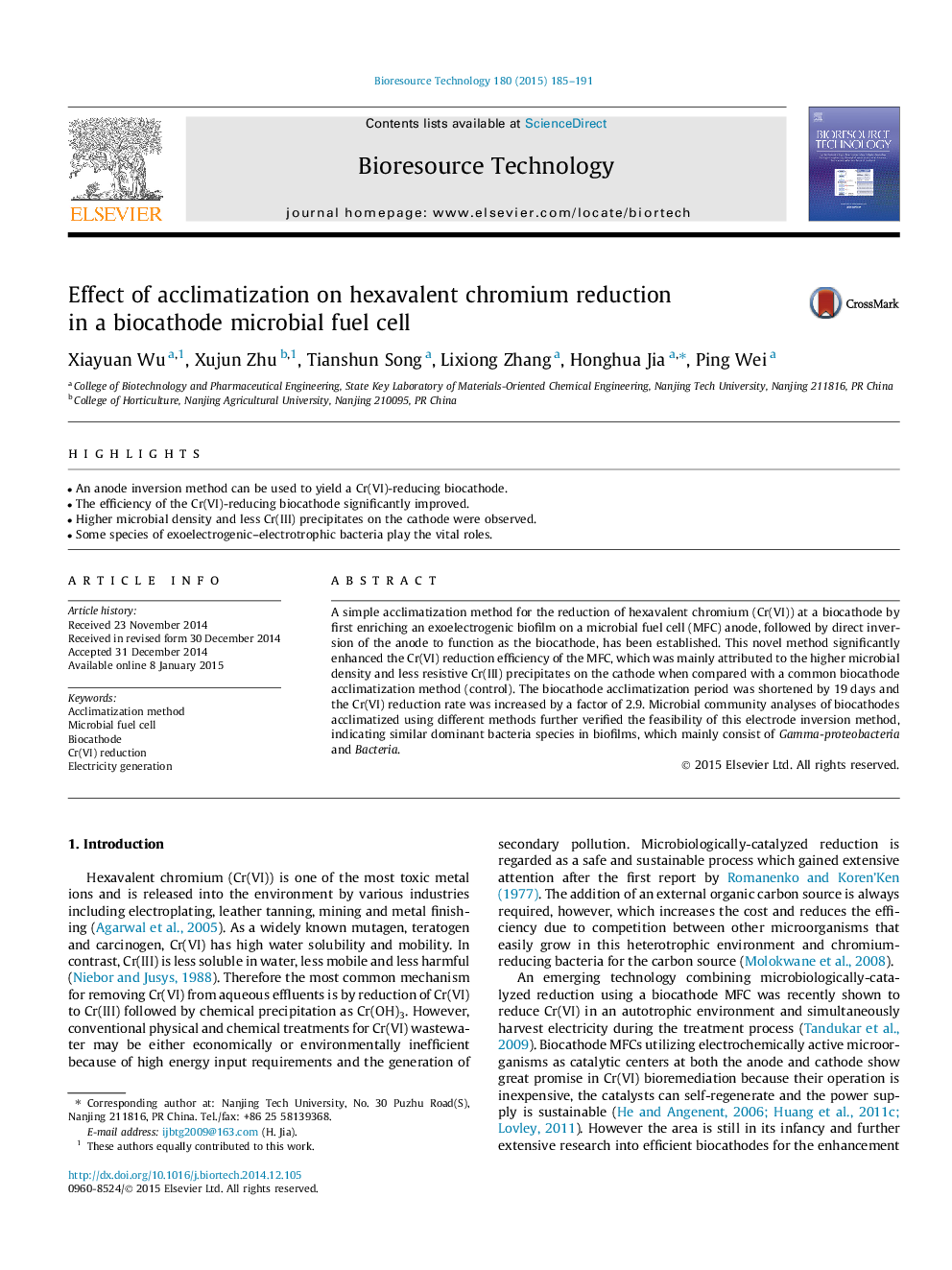| کد مقاله | کد نشریه | سال انتشار | مقاله انگلیسی | نسخه تمام متن |
|---|---|---|---|---|
| 680028 | 1459963 | 2015 | 7 صفحه PDF | دانلود رایگان |
• An anode inversion method can be used to yield a Cr(VI)-reducing biocathode.
• The efficiency of the Cr(VI)-reducing biocathode significantly improved.
• Higher microbial density and less Cr(III) precipitates on the cathode were observed.
• Some species of exoelectrogenic–electrotrophic bacteria play the vital roles.
A simple acclimatization method for the reduction of hexavalent chromium (Cr(VI)) at a biocathode by first enriching an exoelectrogenic biofilm on a microbial fuel cell (MFC) anode, followed by direct inversion of the anode to function as the biocathode, has been established. This novel method significantly enhanced the Cr(VI) reduction efficiency of the MFC, which was mainly attributed to the higher microbial density and less resistive Cr(III) precipitates on the cathode when compared with a common biocathode acclimatization method (control). The biocathode acclimatization period was shortened by 19 days and the Cr(VI) reduction rate was increased by a factor of 2.9. Microbial community analyses of biocathodes acclimatized using different methods further verified the feasibility of this electrode inversion method, indicating similar dominant bacteria species in biofilms, which mainly consist of Gamma-proteobacteria and Bacteria.
Journal: Bioresource Technology - Volume 180, March 2015, Pages 185–191
